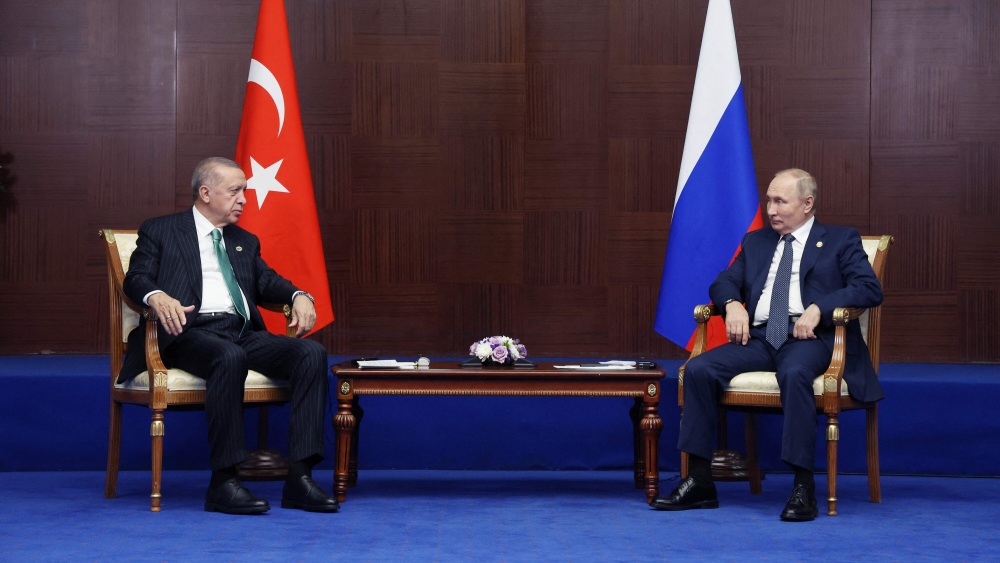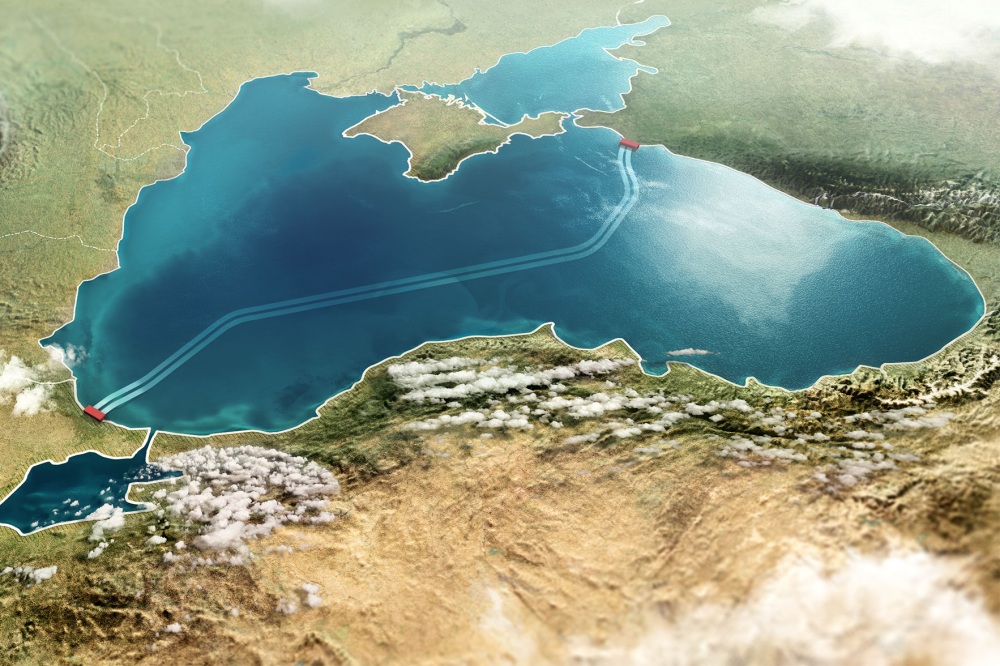 Russian President Vladimir V. Putin, right, meeting with Turkey’s president, Recep Tayyip Erdogan, in Astana, Kazakhstan, on October 13, 2022
Russian President Vladimir V. Putin, right, meeting with Turkey’s president, Recep Tayyip Erdogan, in Astana, Kazakhstan, on October 13, 2022
On October 12, during the Russian Energy Week, Vladimir Putin voiced a proposal to create an international gas hub in Turkey, thereby compensating for the loss of capacity to deliver gas to Europe after the terrorist attacks on the Nord Streams.
The proposal came as a surprise for several reasons.
First of all, judging by the Turkish Energy Minister’s initial reaction, it was also unexpected for the Turkish authorities.
However, the proposal itself was perceived with great enthusiasm: two days later Recep Tayyip Erdoğan instructed the government to work on the possibility of creating the hub as soon as possible and even outlined some details of the project.
For example, the hub could be created in the Turkish province of Thrace in the European part of Turkey, adjacent to the borders of Greece and Bulgaria.
Secondly, Putin’s words about a gas hub raise, at first glance, quite specific questions.
The Nord Streams on the bottom of the Baltic Sea have just been blown up.
Thus, it has been proved that in present conditions offshore gas pipelines are not the safest route for fuel delivery.
The creation of the gas hub in Turkey implies the construction of new offshore pipelines which will face the same challenges as the Nord Streams.
In this case, why do the advantages of the announced project outweigh its disadvantages? And what is its strategic importance given that the EU basically heads for rejection of energy resources from Russia?
The first advantage is the relative ease of implementing the project.
According to Alexei Miller, head of Gazprom, Russia has learned how to build gas pipelines on its own and will be able to implement such projects even without Western equipment and technology.
In addition, much of the necessary infrastructure has already been created.
Before 2014, when Bulgaria, under pressure from the European Union, banned the laying of pipes on its territory as part of the South Stream project, Gazprom managed to build a ground part of the infrastructure in the Krasnodar Territory.
Some of this capacity might have been used to supply gas to Krasnodar Territory and the North Caucasus, but the rest could very well be used for its original purpose.
The “South Stream”, which has gone into oblivion, was designed with the capacity of 63 billion cubic meters, which is even more than the total capacity of the “Northern Streams” (55 billion cubic meters).
The necessary sea infrastructure can be completed in potentially one or two years.
That is how long it took Russia to build the Blue and Turkish Streams.
And the sea cofferdams are much shorter compared to the Baltic part of the pipeline.
Now there is the issue of security. In this context the Black Sea favorably differs from the Baltic Sea.
Russia and Turkey are totally dominant in this region militarily and in terms of intelligence.
In addition, Ankara directly controls the passage of military vessels through the Bosporus and Dardanelles straits, and therefore can easily monitor their actions and movements, and, if necessary, prohibit the passage at all.
Moreover, it is obvious that the transformation of Turkey into a gas hub, which so far have been Germany and Austria, and which role now (through the import of U.S. LNG) is claimed by Poland, strengthens Erdogan’s political positions.
He faces a difficult presidential election next summer, and the current economic crisis in Turkey, which is accompanied by a dramatic weakening of the Turkish lira, is not at all conducive to easy reelection.
In this sense, Moscow is giving a helping hand to Erdogan and thus political rapprochement between the countries (probably within a larger grouping like the BRICS or SCO) in 2023-2024 cannot be ruled out.

Now let’s turn to the main point.
Why do Russia and Turkey need this project at all?
In May this year, the European Commission presented REPowerEU strategy, providing for a complete rejection of Russian energy products, including gas, by 2027.
The project to create an international gas hub in Turkey will take at least a couple of years.
Serious people are not going to make a big deal out of fuel supplies for three or four years.
The only answer to that question is the following. Moscow and Ankara are counting on the breakup of the European Union and, at the very least, on a significant sovereignization of the economies of Southern and Eastern Europe.
The expected decline of the EU’s economic engine, Germany, would negate subsidies from the Union budget to less developed countries.
It will become much more difficult for Brussels to dictate its political will and impose its economic decisions.
This means that Bulgaria, Hungary, the Czech Republic, Slovakia, Serbia and other countries dependent on Russian oil and gas supplies are likely to make decisions in favor of national, not transnational, interests.
Against the backdrop of the coming economic storm, reliable Russian gas supplies mediated by Turkey could be a real lifesaver for them.
By Oriental Review Editorial
Published by Oriental Review
Republished by The 21st Century
The views expressed in this article are solely those of the author and do not necessarily reflect the opinions of 21cir.com.
